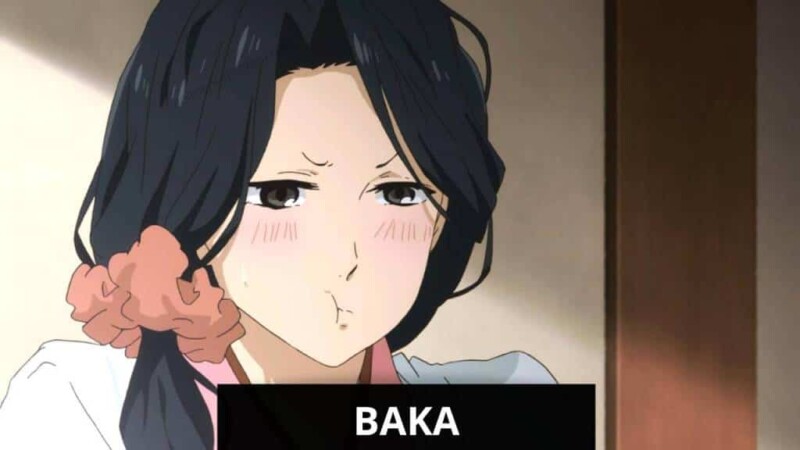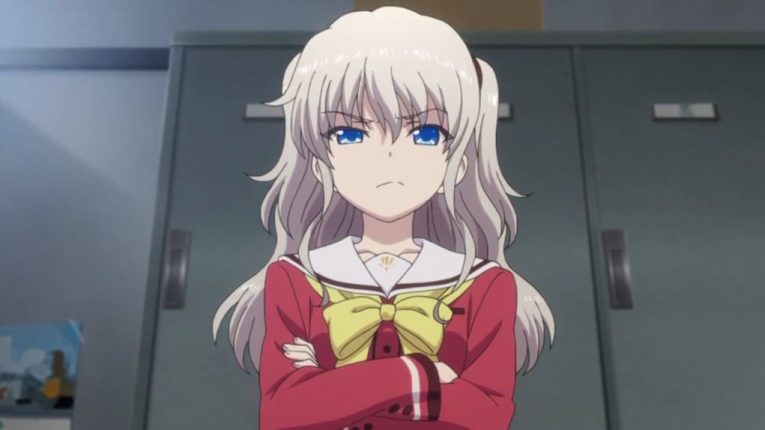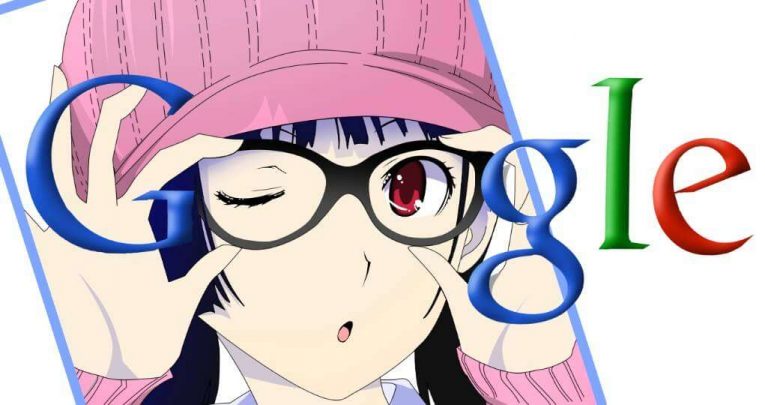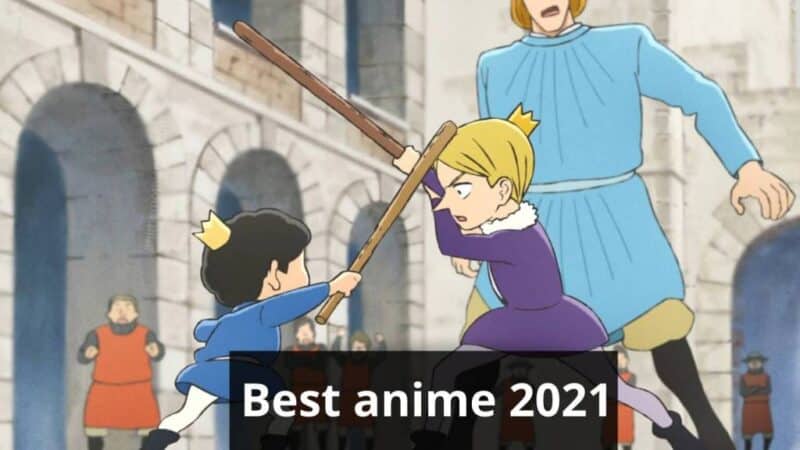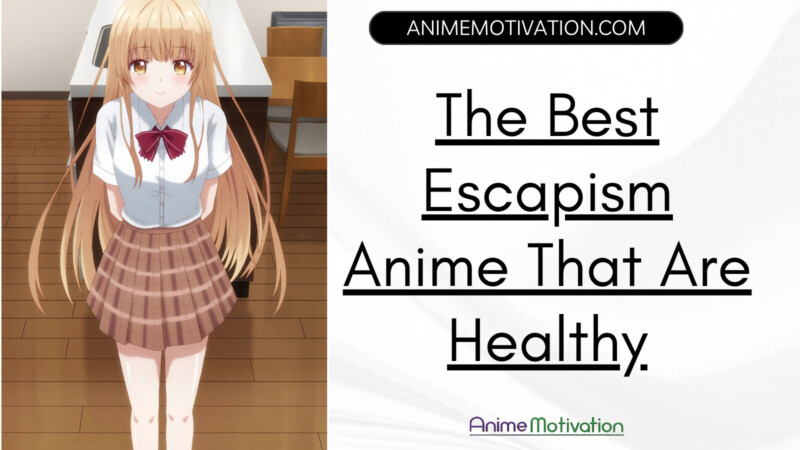Anime piracy will forever be a controversial topic in the near future and years to come.
People are always fighting over the reasons why:
- Piracy is good or bad.
- Why anime fans should do this or do that.
And anything in between which usually leads to extreme views on either end of the piracy fence.
Why are anime fans so emotional about it? And why are some fans in the case of American anime voice actors so ignorant, pushy, and simple minded about piracy as a global issue?
There’s pros and cons to everything in this world. Let’s talk about the pros and cons of anime piracy.
Here’s a list:
PROS:
1. Piracy helps anime become popular

This fact is so undeniable that you have to be naïve and playing politics to argue the point. I mean let’s start with Crunchyroll itself.
Crunchyroll started out as an anime pirate but they weren’t so loud and proud about it when criticized by ANN and other outlets in the 2000’s.
They let fans upload content which they profited off no different to how KissAnime or any other pirate does business these days….
The point here is many of those anime uploaded first to sites like Crunchyroll back in day helped spark anime’s popularity even more. And the position it put Crunchyroll in legally allowed them to do it on a big scale.
KissAnime was next in line from the 2010’s as far as popularity, no one came close. Anime like:
- Sword Art Online.
- Toradora.
- Shakugan No Shana.
- No Game No Life.
- Madoka Magica.
- Black Lagoon.
- Attack On Titan.
- Akame Ga Kill.
- Gurren Lagann.
- Fairy Tail.
- Bleach.
- Naruto.
- One Piece.
And so many more anime shows not worth mentioning were BOOSTED by anime pirate sites. To the tune of millions and millions of views.
I guarantee that lead to sales as well.
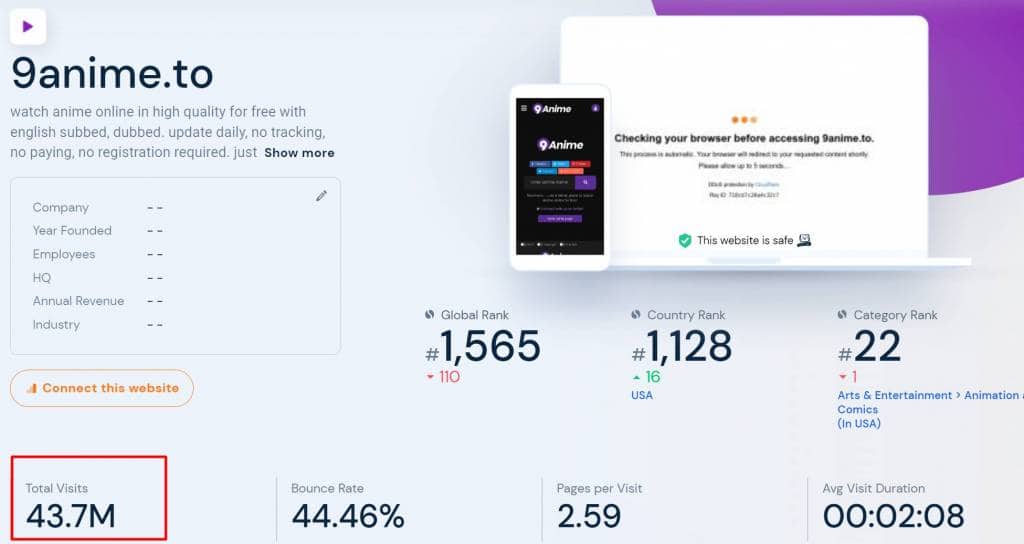
This fueled
Anyone who thinks this isn’t a “pro” for the anime industry and piracy isn’t responsible for promoting anime on a massive scale is naïve.
These sites rake in 10’s of millions of views, in some cases reaching 50 or over 100 million visitors collectively or individually. So it’s an undeniable fact to point out.
2. FREE access to all anime, 24/7
“If a pirate offers a product anywhere in the world, 24 x 7, purchasable from the convenience of your personal computer, and the legal provider says the product is region-locked, will come to your country 3 months after the US release, and can only be purchased at a brick and mortar store, then the pirate’s service is more valuable.” – Gabe Newell
This might annoy some creators and copyright holders and whoever else who talks about piracy, but facts are facts and you won’t escape it with mental gymnastics or accusations.
The appeal of piracy is the fact it’s FREE and easily accessible to everyone no matter where you are.
Compare that to regular anime
This is a common frustration and it differs depending on the site you use for anime shows.
That leads to my next point…
3. Region blocks don’t exist

Region blocks are one of the biggest drivers of anime piracy. It’s the reason people go running to anime pirate sites in the 10’s of millions.
I mean what’s worse than seeing a message saying “This isn’t available in your country” for dozens of anime shows you wanted to start watching?
Eventually people are gonna get sick of that shit and switch over, and they have every right to do it. Being on your so called best behavior and “doing the right thing” is nonsense since it’s not the customers fault to begin with.
Piracy is a service problem, and region blocks are a major problem that makes piracy beneficial for those who it affects.
4. Perfect for overseas anime fans without much alternatives
Extending on the last point – anime fans in countries like:
- India.
- Philippines.
- Indonesia.
- Nigeria.
- UK.
- Romania.
And many other places across the world have a limited selection of anime to watch from legal sites. Even Crunchyroll with its “Funimation” boost still can’t offer a full catalogue to fans in the UK or elsewhere outside the USA.
That speaks to the issues of legal
If people can’t find or watch what they want they’ll look elsewhere. It’s human nature and there’s nothing immoral about it.
5. Where legal streaming struggles, piracy fills in the gaps

In a funny kind of way piracy and the anime industry go hand in hand, helping each other in ironic ways. One of those ways being how piracy fills the gaps that legal
One of those gaps is access along with:
- Choice.
- Deep catalog of every anime show, movie, OVA, and more.
And every other flaw or “lack” that anime
Relevant: An Open Letter To The Anime Industry About PIRACY
CONS:
6. Mangaka’s and IP owners missing out on money
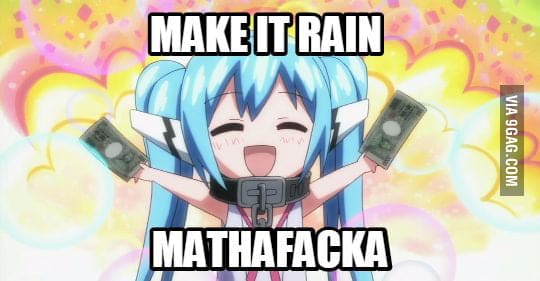
Piracy is an obvious problem and no one with a brain and common sense is gonna deny it. It’s just not a problem to the extent that Japanese creators and IP owners exaggerate it to be.
Even still, because piracy is thriving and doing so well all over the world (Japan as well), the Mangaka’s are losing out on profits more than anybody else.
Next in line is the studios, directors, screenwriters, animators, and everyone else involved in the project.
HOW much is anyone’s guess, but according to the industry they say a few billion is lost from anime and manga piracy. But this number seems random.
7. An issue of ethics
This doesn’t apply to everyone as I implied in the beginning. Some people feel strongly about anime piracy and think it’s morally wrong, corrupt, selfish, and supposedly a thing only poor people do.
The criticisms change depending on how far down the rabbit hole you go.
On the other hand, you have fans who are “pro” piracy and don’t give a flying f*ck about the consequences or the fact that others see it as unethical.
Those in the middle who aren’t on the extreme side of things see piracy for what it is. Whether you see it as unethical or not is a personal choice but the more important conversation is what’s being done about it.
8. Pirate sites aren’t going anywhere, it’s a necessity

People vote with their mouth, their keyboard these days, their lack of spending, or their time and attention when it comes to the internet and
Even people (more than you think) use anime pirate sites despite also paying for at least ONE legal
- What if you wanna watch
old school anime? - What if you wanna watch anime from the 70’s?
- What if you wanna watch anime that aren’t available on legal platforms?
Eventually as an anime fan you’ll come to a point where you HAVE to use pirate sites to watch what you want. Restricting yourself as if you’re trying to avoid taking cocaine is just stupid and doesn’t make you a good Samaritan.
Again – this is a service issue, you were never the problem to begin with.
9. Piracy is a reflection of how BAD the industry is run
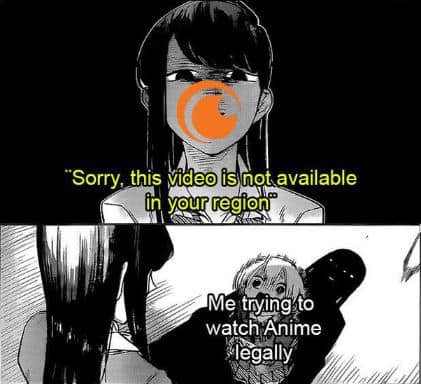
“The easiest way to stop piracy is not by putting antipiracy technology to work. It’s by giving those people a service that’s better than what they’re receiving from the pirates.” – Gabe Newell
All you have to do is look at how anime pirate sites are run, and look at these sites in general to know the anime industry is being run badly.
We’re at a point where pirate sites run ads that can literally infect your laptop with a virus and all kinds of BS for the sake of profit… While simultaneously offering all the anime in the world.
This is the dark side of anime piracy. It’s not all roses and daisies. In fact people are annoyed at the fact they have to use pirate sites because of how they’re designed, but it’s a worthwhile compromise given the situation.
It’s not like legal sites are any better in their own way either. They have their own problems as well which is ironic.
10. Pirate owners hardly, if ever transition

Pirate owners never transition into legal sites with the exception of VERY few who did. One of those examples is Bilibili, a Chinese anime
There’s a
Aside from the fact the majority of anime pirates keep the money to themselves and never share it with anyone, most of all the copyright owners and everyone else involved who are legally owed. But pirates don’t care.
That guarantees piracy won’t go away because of the problems that create it in the first place.
Recommended:
Japan To Launch International Anti Piracy Organization In April To SHUTDOWN Anime Piracy

